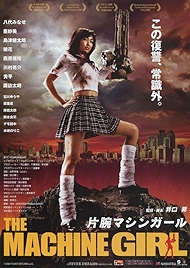A movie for every day of the year – a good one
25 July
Gavrilo Princip born, 1894
On this day in 1894, the man who started the First World War was born, in Obljaj, Bosnia and Herzegovina, to a family of serf farmers, Serbian Orthodox Christians.
Gavrilo Princip didn’t go to school till he was nine, but was bright and a quick learner. His brother, sensing a family member who could lift the entire clan out of poverty, encouraged Gavrilo to move to Sarajevo when he was 13, using money earned as a manual labourer to put his younger brother through merchant school.
Gavrilo became a passionate campaigner for Yugoslavian unification and against the rule of the Austro-Hungarians. Thrown out of school for political agitating, Gavrilo tried to join the Black Hand, one of the foremost Serbian guerrilla bands trying to rid the country of its imperial rulers. But they wouldn’t have him, on account of his size and puniness. However he did manage to join the Serbian Chetnik Organisation and was trained in bomb-making, swordsmanship and shooting.
With tensions rising in the area, the Austro-Hungarians declared a state of emergency in Sarajevo, which propelled Gavrilo and fellow conspirators towards the assassination of Archduke Franz Ferdinand, nephew of the Austro-Hungarian Emperor.
The attempt, on the morning of 28 June 1914, was a catalogue of failure, with none of the six assassins managing to hit their target. However, by a complete fluke, Princip happened upon the Archduke’s car as he made his way across town later. In fact it stalled right in front of him, giving him a shot on target from around 1.5m (5 feet).
His bullets killed both the Archduke and his wife.
The Machine Girl (2008, dir: Noboru Igushi)
Before the opening credits on The Machine Girl have even rolled we’ve met our heroine, Ami, a slip of a girl in a school uniform who has saved a young boy from menacing thugs by blowing them away with what looks like a First World War machine gun, apparently an extension of her arm. But not blown away just any old how. She does it by dismantling their heads bit by bit with a targeted line of bullets, fountains of blood gushing into the air, flops of gore hitting the camera lens.
The credits out of the way, the mood established, we roll backwards in time to discover how a nice meek Japanese miss became a ruthless bloodthirsty killer. Revenge is the answer, for the death of her brother, though really the plot is not the thing in this patchwork of grindhouse and anime held together with blood, gore and an eye for the absurd.
Here’s how she lost her arm: Ami went to the house of the bully who was tormenting her brother, to speak to his parents. They responded by deep-frying her arm. “It’s hot,” she observes. “It fried up nicely,” they reply.
And this is just where the madness is getting going, about 30 minutes in, once the framework of a plot has been established on which to hang the festoons of offal that follow.
How about a chef being fed a sushi of human fingers? Or a father being given a hair conditioner made of his son’s blood? (Is it any surprise to learn that the director used to churn out enema fetish videos?)
But unlike many more western stabs into this territory – the Tarantino/Rodriguez Grindhouse experiments being the most high profile – The Machine Girl never lets on that it’s comedy.
This is all the more impressive when you consider that its lead character, Minase Yashiro, youthful “gravure idol” (a pin-up, basically), is making her debut, and never goes further than offering a hint of panty to satisfy the, let’s face it, largely male audience.
At various points the amputation does get a bit too much, but then the director rescues the film with another moment of bravura slaughter, climaxing in a finale that does special things with a bra the likes of which you probably won’t have seen before.
It’s a comic book collection of offcuts, a resource book of nastiness for Hollywood magpies to pick over, the deliberate 1970s production values, wilfully bad syncing, obviously poorly staged fights all adding to the sense that we’re being entertained as much by Iguchi’s (and our own) sense of cinema history as by the film itself. Those Female Convict Scorpion films of the 1970s have a lot to answer for.
Why Watch?
- A kickass debut by Minase Yashiro
- One of the most inventive gore feasts you will see
- The brilliant practical special effects
- The Japanese return the Grindhouse compliment
The Machine Girl – Watch it now at Amazon
I am an Amazon affiliate
© Steve Morrissey 2014

